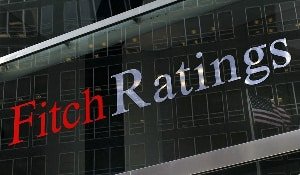According to Fitch Ratings, the restructuring of local currency (LC) state debt might put substantial pressure on the capitalization of Ghanaian banks.
When banks swap their current debt for new bonds with lower yields and longer tenors, Fitch predicts significant economic losses for the banks.
This could cause some banks to have significant capital deficits, but we anticipate that regulatory forbearance would lessen the effect and allow banks to continue complying with minimum capital requirements.
Despite regulatory forbearance, the two Ghanaian banks that Fitch rates should be able to sustain the LC debt exchange thanks to significant capital buffers.
The LC debt exchange, launched on 5 December, comes alongside Ghana’s efforts to secure IMF support. Fitch views it as a distressed debt exchange and downgraded Ghana’s Long-Term Local-Currency Issuer Default Rating (IDR) to ‘C’ from ‘CC’ as a result.
Ghana’s Ministry of Finance has stated that the debt exchange is voluntary but we expect banks to participate, particularly as the risk-weighting for the old bonds will be increased to 100% from 0%, and non-participating banks will not be eligible for liquidity support from Ghana’s newly created financial stability fund. Treasury Bills, which account for about 15% of the banking system’s securities according to Bank of Ghana data, are excluded from the restructuring.
Based on the coupon rates and tenors of the new bonds, and assuming a 20% discount rate, we estimate that banks exchanging old LC government bonds will suffer a net present value loss of about 50%. This would significantly erode banking system capitalisation. However, we expect the authorities to allow flexible accounting treatment to significantly reduce losses, and to ease regulatory capital requirements so that banks can still meet minimum capital ratios.
Holders of LC government bonds were originally given until 19 December to formally respond to the exchange invitation but the deadline has been extended to 30 December. Fitch believes there is much opposition to the terms of the exchange, which raises the prospect of a further extension of the deadline and potentially a relaxation of the terms, reducing the losses imposed on creditors.
On 20 December, the government announced plans to restructure its external sovereign debt, which will add to the pressure on banks’ capital. Details have yet to be announced but payments on selected external debt, including Eurobonds, commercial term loans, and most bilateral debt, have been suspended.
Fitch views this as the beginning of a sovereign default process and downgraded Ghana’s Long-Term Foreign-Currency IDR to ‘C’ from ‘CC’ accordingly.
Fitch rates two Nigerian-owned banks in Ghana: Guaranty Trust Bank (Ghana) Limited and United Bank for Africa (Ghana) Limited, both with a Long-Term IDR of ‘B-’/Stable and a Viability Rating (VR) of ‘ccc’.
Taking account of these banks’ sovereign debt portfolio compositions, ample capital buffers and good headroom on other rating factors, we believe their VRs should be able to withstand both the LC and foreign-currency debt restructure, in addition to impending asset quality deterioration due to the effects of severe currency depreciation, extremely high inflation and large interest rate rises.
The two banks’ Long-Term IDRs are driven by our view that support from the banks’ Nigeria-based parents is likely to be provided, if needed. We do not expect Ghana’s debt restructure to affect the owners’ stance in this respect.
Foreign-owned banks, which account for about half of banking system assets in Ghana, may be better-placed than domestic banks to navigate the highly stressed operating conditions due to parental capital support.


